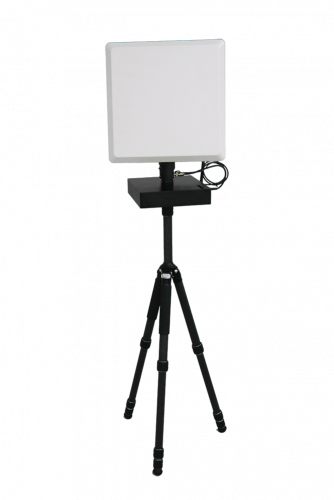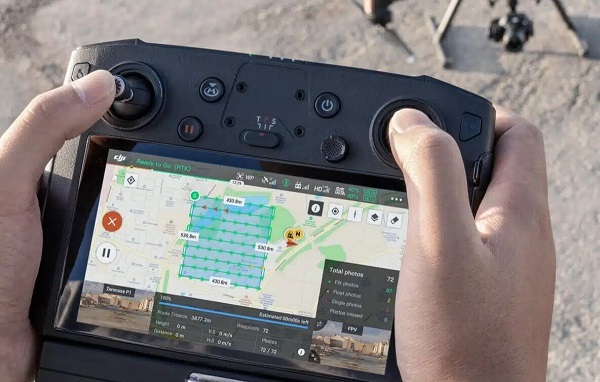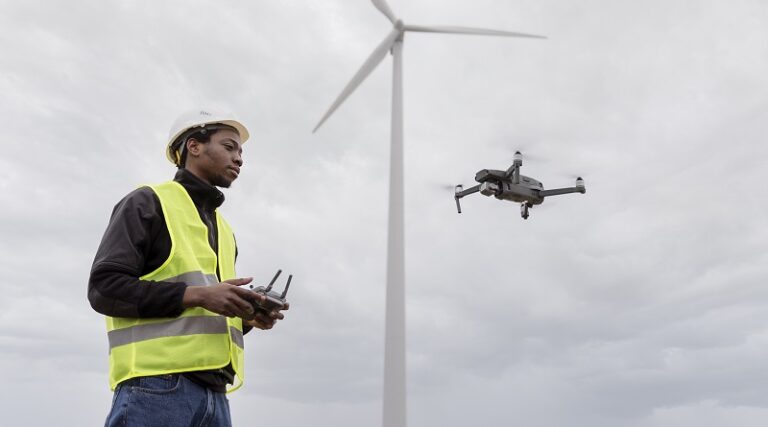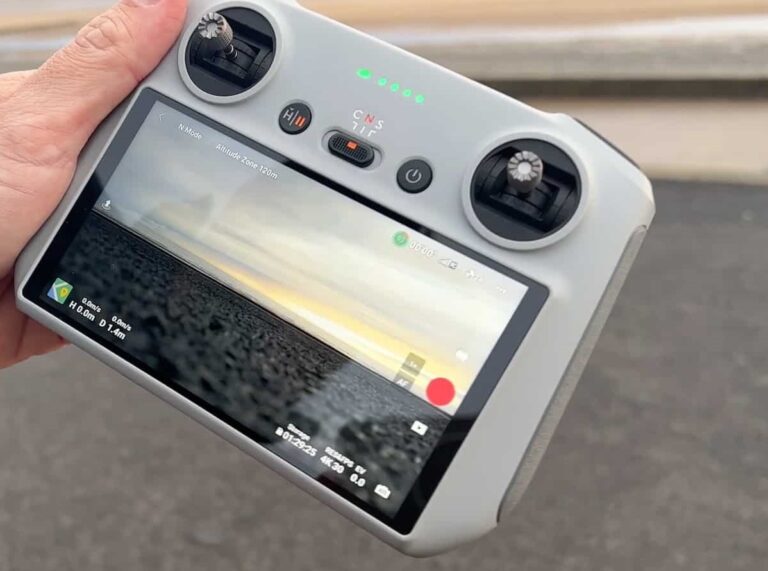
Wireless Communication Link Overview
A wireless communication link is what you need to remotely monitor and control your drone from any distance. There are two types available: Analog and Digital. Digital Links (compared to Analog Links) are more robust to noise. You are either connected or not, but if you are, you have the best data quality. On the other hand, with an analog link, you can be still connected, but with poor quality and noisy data reception. Some digital datalink have an adaptive algorithm that based on the RSSI of the link, decrease the bandwidth in long distances to still have reliable connection. This may lead to lower update rate of the received data.
The importance of long range communication link becomes more evident when the drone is operated in a dangerous situation, like fighting a fire, or in environments not reachable by humans, like rescue missions during floods or earthquakes. So it is really important to have a reliable solution.
Applications
Control
Sending Manual or mission commands to the drone

Real-time Monitoring
Receive real-time stream of the drone’s camera footage

Status Data
Receive some information including attitude, altitude, and position of the drone from onboard sensors like IMU and GPS

Different Types of Communication Links
Telemetry
Datalinks (communication links) used in drones and UAVs can transfer three major types of information. The first type is Telemetry data, which refers to a collection of measured data at the remote point (drone in this case), reported back to the Ground Control Station (GCS). This data includes the position of the aircraft, usually collected from GPS data, speed, and altitude, as well as attitude and any other types of data from all the installed sensors on the drone. Meanwhile, telemetry is also used to send commands from the GCS to the UAV to do missions.
Digi 9xtend
Frequency: 900MHz
Power: 1W
Range: up to 64km
Microhard P400
Frequency: 400MHz/900MHz
Power: 2W
Range: up to 100km
Radio Control
The next type of communication data corresponds to Radio Control data, briefly called RC. Some drones need to be controlled manually in close distances, while others fly fully autonomous. For those that need manual control, usually RC is the preferred solution. It is a high speed controlling signal (about 50Hz update rate), with different protocols including PPM and SBUS. It is possible to have a different receiver on the drone for RC data, or use the main link for the RC data transfer if supported. Radio controllers usually have a limited range and transmission power, supporting up to around 2km control distance. This limits the manual control of the drone to only close ranges.
Radiomaster Boxer
16 channels
2.4 GHz
FrSky TANDEM X18SE
Up to 24 channels
900M/2.4GHz Dual-Band Internal RF Module
SIYI VD32
16 channels
2.4GHz
Video Link
Video Link is the 3rd type of link used in drones and UAVs. For surveillance and mapping missions, a gimbal camera is installed on the drone. While the output of the camera is recorded on board, it still needs to be transmitted to the Ground Control Station in real-time for monitoring by an operator. With high-quality camera sensors, a huge amount of data needs to be transferred, which usually leads to latency in the data transmission. A latency of under 300ms is considered a good one. Current available digital video links in the market support the transmission of videos with a resolution of 4K and 120fps in distances more than 10km.
Caddx Vista
Weight: 29g
Frequency: 5.8GHz
Power: 25-700mW
DJI O3 Air Unit
Weight: 31g
Frequency: 2.4GHz
Power: < 33 dBm
All-in-one
Available in different frequencies, they can transfer high-quality video (e.g., 4K or Full HD quality), as well as telemetry and RC all in one integrated module, in long distances based on the output power selection. Many different interfaces are integrated to be compatible with all different accessories. USB and TTL data ports are available for telemetry, while you can connect your gimbal to a HDMI or Ethernet IP port. Some systems come with a touchscreen to run the control software onboard, and include physical channels on the ground unit to control the UAV. On the other hand, there are versions that only give you the desired interfaces, and you need to use an external PC and monitor.
Herelink
Frequency: 2.4GHz
Video Input: 2x HDMI
Range: 20km
CommuniNet Series
Frequency: 1.4GHz
Video Input: 2x Ethernet
Range: up to 200km
ViULinX
Frequency: 1.4GHz/2.4GHz
Video Input: HDMI / Ethernet
Range: up to 150km
MotioNew Featured Products
MotionUAV OEM modules
MotionUAV is one of the manufacturers in the market with high quality, robust, and reliable design. They have many different designs, based on different manufacturers including Microhard and Digi. The aluminum casing protects the module from harsh environment, while the hard anodizing gives it a very delicate look.

